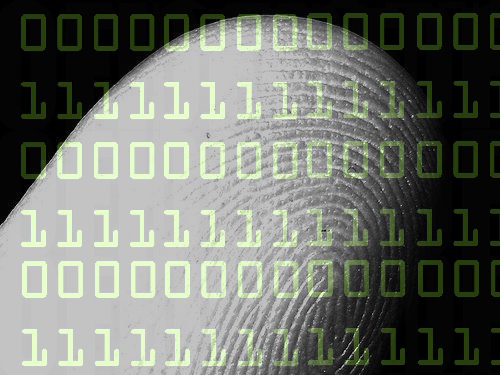National biometric pub list use 'explodes'

update Pubs and clubs are signing up in droves to national and state biometrics databases that capture patron fingerprints, photos and scanned driver licences in efforts to curb violence.

(Image by Stefan Mortellaro and Kurtis Scaletta, CC2.0)
The databases of captured patron information mean that individuals banned at one location could be refused entry across a string of venues. Particularly violent individuals could be banned for years.
The databases are virtually free from government regulation as biometrics are not covered by privacy laws, meaning that the handling of details are left to the discretion of technology vendors.
Venues typically impose bans of one month to a year, and it is up to the discretion of clubs to adopt or share exclusion lists.
Australia's largest database idEye, which pitches itself as the only national repository, has said that it has received an explosion of venues signing up to share lists.
"The take-up is growing very rapidly," said Peter Perrett, chief executive of ID-Tect, the company which created idEye. "It has exploded."
"You don't get on the list because you didn't want to go home — you get on there because you are a safety risk.
"Bans are only effective from one venue, but you will also be flagged … it will pop-up and show that this guy is banned, here are three photographs, his details and the offence."
Venues may choose to accept or ban any individual on the list, and data is encrypted and stored on "secure servers".
State governments have been cracking down on violence in pubs and clubs, and threatening to impose tough measures on the worst offenders and impose night-time curfews.
The national database can be tweaked to suit a venue, allowing them to source different patron identifiers such as facial recognition, optical character recognition or fingerprint scans.
Perrett would not be drawn further on the database's adoption, citing commercial sensitivity, but said it is "a lot larger in [use and adoption] than you'd think".
While patrons remain divided on the need to surrender biometric data to buy a beer, the system appears to have led to a halt in violence in pubs and clubs.
The Woodport Inn on the NSW Central Coast has obliterated the incidents of violence which had once troubled its night club.
"[The] violent people here are gone, just gone," said one bar manager. "They are scared of it. They know they will be caught".
The venue is one of several in the area that use NightKey fingerprint scanners, including the Central Coast Hotel and Woy Woy Leagues Club, but it does not share ban lists.
A manager from a Sydney CBD bar who requested anonymity said that the ban database had cut violence, adding that the venue may soon be able to reduce its security headcount. The machines are not classified by NSW Police as security equipment and can be operated by a staff member.
Alcohol-related incidences have dropped by up to 80 per cent in some venues that use the scanners, according to Perrett. He said the data is a smoking gun that police can use to convict violent offenders.
He said that "very, very serious crime in major places" carried out by offenders currently up before the courts has resulted from investigations lasting "minutes" rather than weeks because of being able to link biometric data to CCTV footage.
Used alone, Perrett said CCTV is inefficient and offenders "are not worried about it". He added that crime in venues is unreported due to the negative publicity it generates.
The patron data collected in the database is destroyed within 28 days unless an offence is committed beforehand. The data is not automatically fed into police records.
However, many might be concerned about the privacy implications of the collection of such data.
Biometrics Institute head Isabelle Moeller said that pubs and clubs are still refusing to sign onto its biometric charter of use, which has the backing of the Federal Privacy Commissioner.
"[Venues] may roll biometrics out innocently or they may not want to bother with privacy concerns," Moeller said. "Biometrics needs to be part of privacy law, the government needs to take control of this."
She said that Clubs NSW has agreed to sign onto the charter and will participate in upcoming biometric privacy discussions, but the reception from other states has been cold.
The Australian Hotels Association (AHA) (NSW) chief executive Sally Fielke said in a statement that the implementation of biometric scanners is a decision for individual clubs.
"The introduction of ID scanning is a business decision for individual venues."
"The AHA (NSW) encourages members to look at a whole range of proactive initiatives to continue to ensure that their venues remain safe … and assists venues to comply with all legal obligations including privacy laws."
Fielke said that the take-up of the services by AHA (NSW)'s members was low.
It did not respond to questions about whether it would recommend venues use biometric scanning.
Colin Ho contributed to this article
Updated 2 February 2011, 12am: renamed the Biometrics Institute charter to Privacy Code, and noted that Clubs NSW will promote the Biometrics Institute Information Sheet.